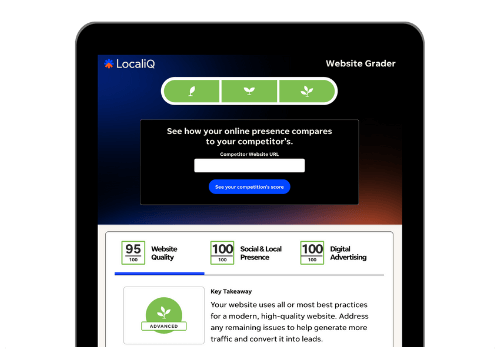It’s hard enough to keep up with running your business, let alone the best ways to market it. This post was written to help you stay informed and on top of what’s important for your business’s growth and success.

12 Things to Know for Small Business Success
1. Your UVP
Your unique value proposition is what sets you apart from your competitors. It’s the thing(s) you do to help your customers in ways that your competitors don’t (or can’t). Every successful business has a UVP, whether they’ve articulated it or not. If you don’t know your business’s unique value proposition, you need to; and then you need to incorporate it into your content and messaging (like in your mission statement and your business description!).

2. The Power of Local SEO
Search engines have radically improved their understanding of locality, and having your business correctly identified and optimized for local search is crucial for attracting the right customers. This means optimizing your website with your location in mind, getting your business listings in local directories set up, and tagging your location in your social media posts.
3. The Importance of Google My Business
Same song, different notes: The Google My Business platform is having an ever-growing impact on how local customers find businesses. Getting your Google My Business profile created and populated is a minimal time investment with a major return.

4. Who Your Target Audience Is
For your business to be successful, you need to be super familiar with your target audience or it’s going to be near-impossible to get more customers through the door. Think about who your best customers are now — do they share any similarities, demographic data, and more? Getting clear on your target audience can help you hone your marketing to reach the right people and can help you determine the right message to deliver.
5. Who Your Competitors Are
Who competes with you for the dollars and mindshare of your customers and clients? It’s important to know your competitors so you can keep tabs on them, solidify your positioning in your market, and identify gaps that you can fill in.
6. Who Your Complimentary Businesses Are
Complimentary businesses are your natural source for partnerships and joint promotion opportunities. Both you and your partner stand to benefit from an expanded audience and increased value.
7. What Your Metrics Are
It’s important to identify what success looks like for your business, which might be organic traffic, the conversion rate on your ads, email open rate, monthly revenue, or inventory growth. Whatever your important metrics are, knowing them gives you a baseline so that you can see how well you’re progressing and where you need to improve your performance.

8. Reviews are Crucial
Word of mouth has and always will be the most highly-prized method of getting your business in front of more customers. In addition to the traditional person-to-person form, online reviews are now a major component of the word about your business. Being proactive with collecting positive reviews for your business is one key to building your credibility with potential customers.
9. Email Still Works
Good old fashioned email marketing still works. It’s still effective, it’s still affordable, it’s still the way for you to convey valuable information to your leads and prospects without taxing your resources or annoying your targets.
10. Your Niche
Your business has a niche in the world, or should. It is better to be great at one thing than it is to be mediocre at many things. Everyone can get mediocre just about anyplace they turn. Mediocre isn’t competitive. It’s great that’s hard to find. Find your niche and be great in it.

11. The Power of Simple Content
Content is crucial for marketing, but you don’t have to be the world’s greatest writer or use fancy industry jargon to be successful. Marketing is about connection. Write and create as if you are just talking with your audience in a regular personal conversation. Employ their language, convey simple and digestible information, and express your brand message in relatable ways.
12. How to Create a Growth Strategy
As a business owner, you want to have goals and a plan for your business so you can stay on track toward success. A growth strategy can help propel your business to the next level and help you stay laser-focused on the areas that will contribute to your bottom line.
In your journey as a small business owner, there will always be new things to learn, but the 12 concepts above are foundational. Keep them in mind when forming your marketing strategy, and you can expect success.






